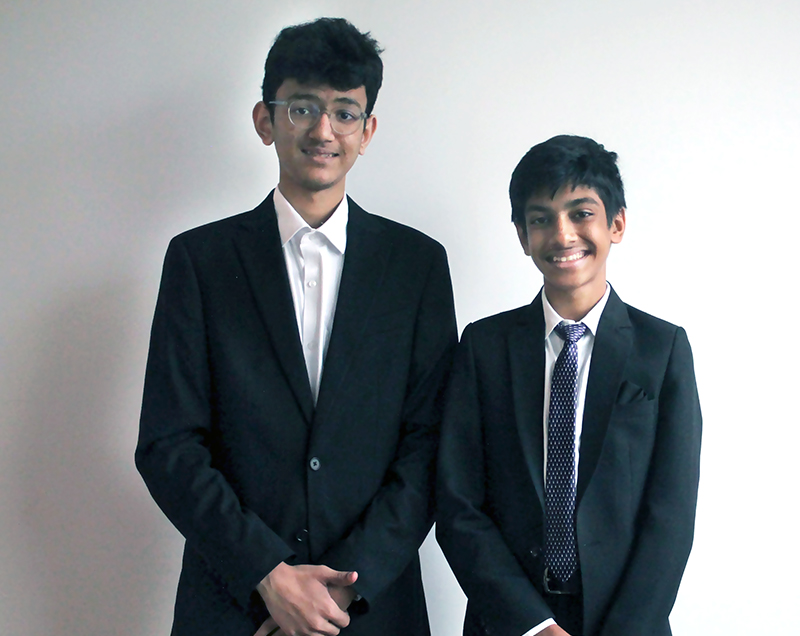
President of the Historic Security Council : Apoorv Gupta
Deputy Presidents of the Historic Security Council : Praghyaan Bordiya and Rajvir Jagwani
"If you want to understand today you have to search yesterday."
- Pearl S. Buck
Dear Delegates and MUN Directors,
The modern world no longer faces isolated crises or conflicts, but rather – due to the unparalleled level of globalization – faces a web of crises that amplify each other. In today’s complex and interconnected global landscape, the DAIMUN 2025 theme ‘Polycrisis: Navigating a New Global Order’ is both timely and crucial.
As the world attempts to bring about peace in the face of interlinked conflicts around the globe, the world’s power balance is also shifting. We are quickly moving from a unipolar to a multipolar world order which demands greater cooperation throughout the international community in crafting solutions for global problems.
In the Historic Security Council, delegates will tackle various significant conflicts of the past that have had long-lasting implications on the world that can be seen even today. The committee also serves as a medium through which delegates revisit the defining moments of history, and get to re-examine landmark decisions and crises through a new lens. It helps recognize the overriding influence of diplomatic talks, negotiations, and treaties, in shaping the course of current global affairs.
Our first agenda is ‘Addressing the Implications of the Cambodian Khmer Rouge Regime’. This remains one of the most horrific and shocking genocides that took place in modern history. The world took little action to help put an end to the atrocities during the Khmer Rouge’s rule and it marked a tragic period of history where cold war politics and the thirst for geopolitical power took precedence over innocent human lives. Delegates will have a unique opportunity to go back into the past and help work towards achieving a more positive outcome. They must navigate through cold war tensions, complex accountability and legitimacy issues, as well as providing much-needed humanitarian assistance to the victims. They must also aim to craft solutions that can bring about stability in the region in the aftermath of the regime.
Our second agenda is ‘Addressing the Soviet invasion of Afghanistan’’. This remains one of the most crucial and defining moments of the Cold War geopolitics, which ignited a major conflict in Afghanistan, and fueled global tensions for years to come. In 1979, the Soviets launched a military intervention in Afghanistan under the disguise of supporting them, but what followed was a decade-long war which left Afghanistan completely destabilized. The intervention transformed Afghanistan into a proxy battleground, with countries such as the United States, Pakistan, and the USSR, prioritizing strategic dominance over peace and human dignity. Delegates must not only work to end the violence but also lay the groundwork for long-term regional stability, national sovereignty, and accountability. Addressing this crisis differently could have transformed the landscape of South and Central Asia, and could have prevented the rise of extremist organisations, which pose a major security threat even today.
Our third Agenda is 'Deliberating on means to resolve the Civil War in Biafra.' The Nigerian Civil War wasn't a regular Cold War conflict, It was shaped by a mix of foreign interference, local tensions. Setting the timeline in July 1968 places delegates at a point when outside involvement was at its highest and the direction of the war was still uncertain. This moment lets us take a closer look at how newly independent countries were often left to deal with deep crises while powerful nations focused on their own interests. For the Historic Security Council, the goal isn't just to bring an end to the fighting. It's also about thinking carefully about the role the UN plays when national independence is challenged by outside pressure. Delegates will need to focus on more than military decisions. They will be faced with hard questions about national identity, foreign influence, and what that means for a country still trying to recover from colonial rule.
Over the course of the conference, delegates will engage in spirited debate across all the three agendas and work collaboratively to craft creative solutions to global issues that have had far-reaching impacts. They must ask themselves questions about how these situations could have been handled better in the past, and will get to see alternative outcomes where more informed decisions are made. History is our best teacher, and through the Historic Security Council, we give delegates an opportunity to learn from it.
With the goal of achieving constructive solutions by encouraging collaboration and taking part in engaging debate, I, along with my talented Deputy Presidents, Praghyaan Bordiya and Rajvir Jagwani, welcome you to the Historic Security Council at DAIMUN 2025. We wish you the very best for the conference!
Sincerely,
Apoorv Gupta
President of the Historic Security Council,
Praghyaan Bordiya and Rajvir Jagwani
Deputy Presidents of the Historic Security Council,
DAIMUN 2025